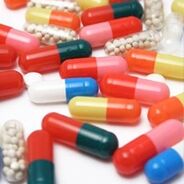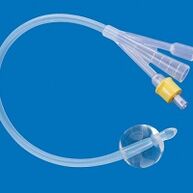
Prostatitis is the most common urological disease in men in modern medical practice.
Prostatitis in men can be caused by a bacterial infection or a male lifestyle.
It is not worth starting the disease. For the first urinary incontinence, a urologist should be consulted, a full examination should be performed, and the correct diagnosis should be made.
Without proper treatment, prostatitis can lead to prostate cancer that cannot be cured with medication.
The main groups of drugs used to treat prostatitis
The main groups of medicines used to treat prostatitis are:
- With alpha blockers. . . Formulations containing such an active ingredient improve the tone of the detrusor, which significantly improves urine.
- With 5 alpha-reductase inhibitors. . . Drugs in this group can reduce adenoma and relieve pain. It is recommended to be combined with physiotherapy procedures.
- Herbal anti-inflammatory drugs. . . They are quite effective, have a strong antiseptic effect, and have minimal side effects and contraindications.
Important!There are contraindications and side effects, so self-medication is unacceptable - the urologist must choose the medication and dosage.
Methods of treating prostatitis with drugs
The patient can be assigned:

- Rectal suppositories.Drugs stimulate metabolism. The suppositories are injected in a supine position and then allowed to rest for half an hour. The cure can take up to ten days. Side effects such as an allergic reaction or itching may occur.
- Injections.They stimulate prostate activity and strengthen the immune and vascular systems. The doctor will prescribe the medicine intramuscularly. The cure can take up to ten days. There are no obvious side effects.
- Instillations.The doctor injects the medicine directly into the destination through the urethra. Up to 5 ml of the mixture is injected simultaneously. It is essential to empty the bladder before the procedure.
- Enemas.The solution for the enema is based on herbs. Apply the enema hot before going to bed. Basically sage, chamomile, womb and marigold are used for this. Up to 100 ml of hot solution is injected into the rectum.
- Pills.Treatment of prostatitis involves the use of a broad spectrum of antibacterial drugs. This is especially important if the pathogen of the disease has not been identified.
Important!Antibiotic therapy is used to treat acute and bacterial prostatitis.
Rectal suppositories for the treatment of prostatitis
Suppositories for rectal use are one of the most effective remedies. They have a wide impact and have a positive impact on the affected area.
The most effective and most commonly prescribed drugs are:
- Candles with ichthyol. . . They have an anesthetic and antiseptic effect, improve blood circulation. Often these suppositories are prescribed in combination with tablets and physiotherapy. Candles don’t have a very pleasant scent, but that doesn’t affect the skin in any way. The drug is contraindicated in the presence of internal hemorrhoids and anal fissures.
- Candles with propolis. . . They have an anti-inflammatory effect and relieve pain when urinating. The drug has no contraindications (except for individual intolerance to the ingredients) and is therefore often used in preventive measures.
- Suppositories with indomethacin.They relieve swelling and inflammation while normalizing prostate function. Used in advanced cases. The drug has contraindications, a doctor's consultation is required.
Injections to treat prostatitis
Modern medicine offers injectables designed to treat the prostate and strengthen the immune system in men.
These drugs improve regenerative processes. The injections are used for conservative treatment or prevention, protecting the prostate from viruses. The drugs have contraindications, so only the doctor prescribes the dose.
Instillations

The method is based on the application of the drug to the affected area.
This method allows you to get rid of bacteria completely. Ozonated solutions, antiseptics are used as medicine.
Important!The instillation procedure is performed only in the doctor's treatment room. Only he can select the right medication, insert the catheter into the urethra, and perform all the necessary manipulations to keep the solution inside.
The course lasts 1-2 months, depending on the stage of the pathology.
The procedure is performed 2-4 times a week.
Pills for the treatment of prostatitis
The tablets, like candles, are divided into groups depending on the operation. Medication can only be prescribed by a urologist after a complete examination that determines the stage of the disease.
Important!There are contraindications and side effects, so self-medication is unacceptable - the urologist must choose the medication and dosage.
The most common medications are prescribed:
- Anti-inflammatory. . . Used for acute prostatitis and pain during urination. The drugs are effective in treating prostatitis, preventing it from becoming chronic.
- Anticonvulsants. . . A group of drugs used to relieve cramps and relax muscles, which significantly improves blood circulation.
- Antibiotics. . . Prescribed for bacterial prostatitis. Which antibiotic to prescribe is determined by the doctor who performs the test. Antibiotics are taken during a course of treatment with rectal medications.
Antibiotics for the treatment of prostatitis

Let us examine the last group of drugs in more detail.
Fluoroquinolones are relatively recently developed modern antibacterial agents. They have several advantages over other broad-spectrum antibiotics. Drugs in this group have virtually no immune deficiency. Fluoroquinolones have an even wider spectrum of action on microorganisms.
Formulations of the tetracycline group may also be used. Usually, these bases are prescribed for infectious and chronic prostatitis.
Antibacterial drugs are prescribed only after infection testing. Until the results are achieved, symptomatic therapy is performed to relieve pain and inflammation.
Antibiotic treatment lasts for about a month, followed by clinical monitoring of the patient's condition.
We bring good results with complex therapy, which aims to increase the body’s general and local resistance to disease-causing factors. Only then can there be a complete recovery or long-term remission.



























